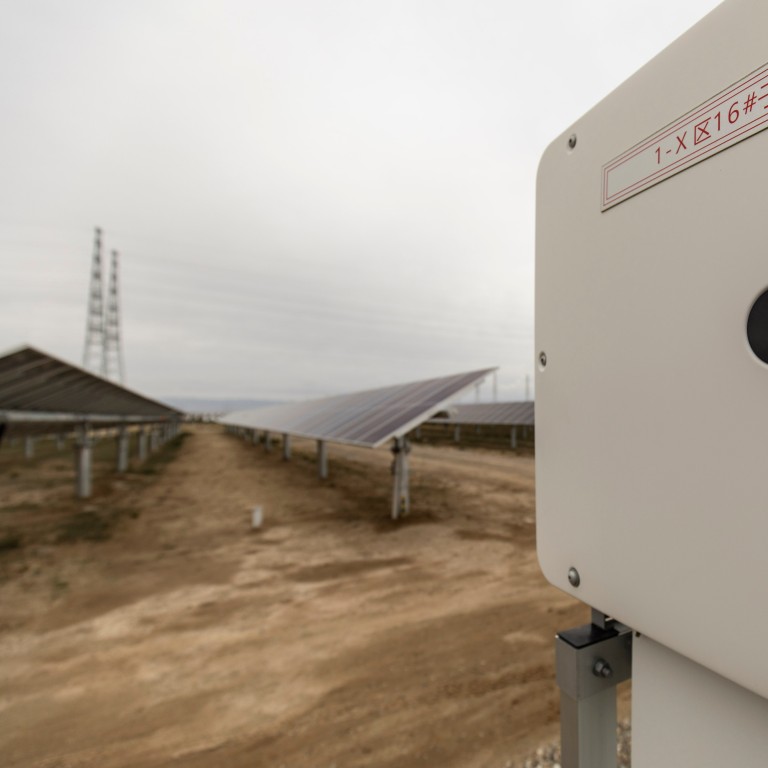
Alibaba’s logistics arm Cainiao puts solar panels on warehouse roofs to cut carbon emissions
- The systems are being used at bonded warehouses in Hangzhou and Ningbo in eastern Zhejiang province
- It is estimated that the move will reduce carbon emissions by 5,535 tons a year at Cainiao
Alibaba Group Holding’s logistics arm Cainiao has installed solar power systems on top of its warehouses, in the latest drive by the country’s tech companies to support Beijing’s carbon-neutral goal.
The systems are being used at bonded warehouses in Hangzhou and Ningbo in eastern Zhejiang province, which span over 100,000 square metres. It is estimated that the move will reduce carbon emissions by 5,535 tons a year, equivalent to the yearly carbon intake of 700,000 trees, the company said in a statement on Thursday.
Sun Beibei, general manager of the global supply chain for imports at Cainiao, said the photovoltaic power generation project is just “the beginning of sustainable measures that we have planned”. Cainiao said it plans to install rooftop solar power systems on its warehouses spanning a total area of 500,000 square metres by 2023.
Cianiao brings smart logistics to China’s newest free-trade zone
Solar power is a renewable energy that China is trying to develop further. According to data from China’s State Energy Bureau, China’s total solar power generation capacity at the end of 2021 increased 20.9 per cent from a year ago to 310 million kW.
China’s photovoltaic power generation increased 25.1 per cent in 2021 from 2020, accounting for 7.9 per cent of total power generation in the country, China’s official data showed.
Chinese President Xi Jinping announced in September 2020 that the country, the world’s largest carbon emitter, would hit a peak for national carbon emissions by 2030 and reach net-zero emissions by 2060.
China’s Big Tech companies have also rushed to embrace carbon reduction measures. Shenzhen-based Tencent Holdings, the owner of ubiquitous messaging app WeChat, said last month that it aims to become carbon-neutral across its operations and its supply chain by no later than 2030, following a similar pledge by Alibaba announced last December.
Solar panels installed on the roofs will enable Cainiao to produce its own electricity to support warehouse operations, and surplus electricity will be sent to the State Grid, China’s electric utility corporation, for broader usage, the company said.
The electrical output will power Cainiao’s operational systems in a warehouse in Xiasha district in Hangzhou city. The warehouse also uses energy-saving lighting systems, which measure and adjust the amount of light within the warehouse via sensors in real-time, according to Cainiao.
Alibaba owns the South China Morning Post.

